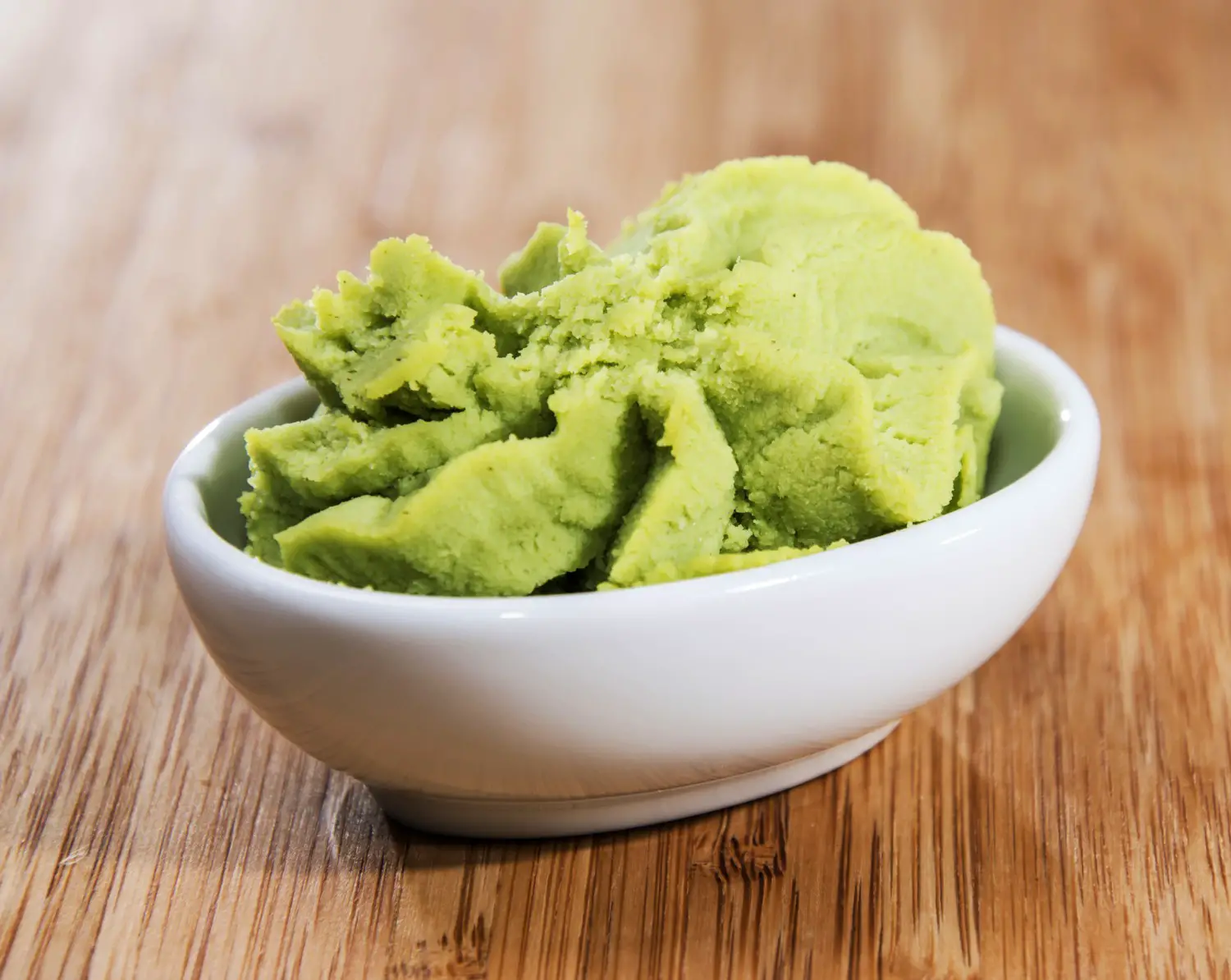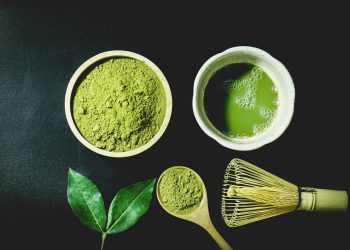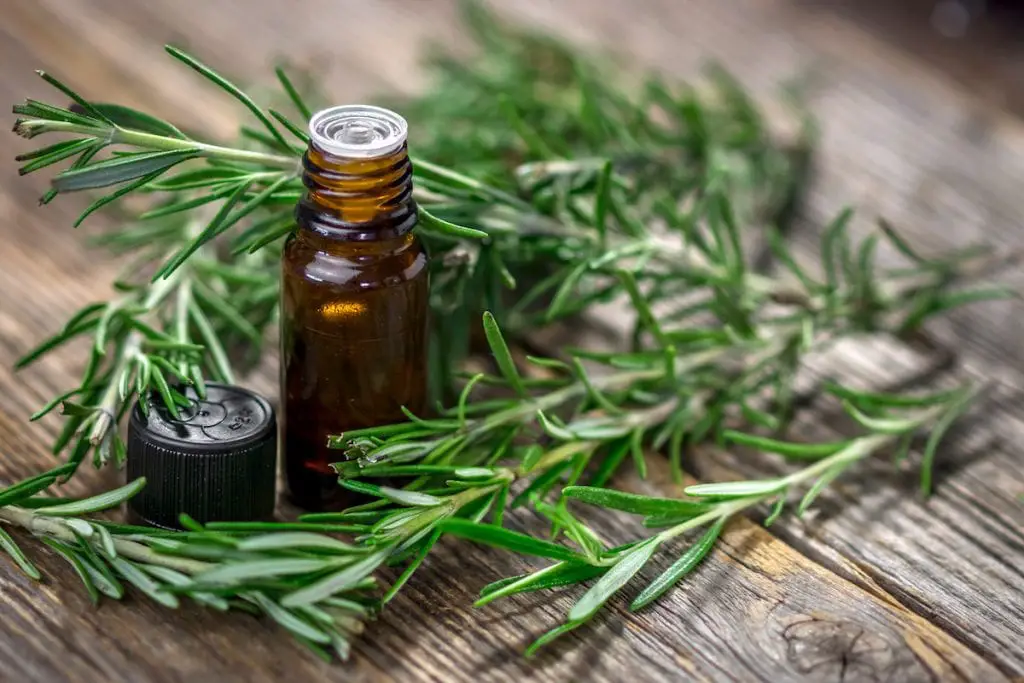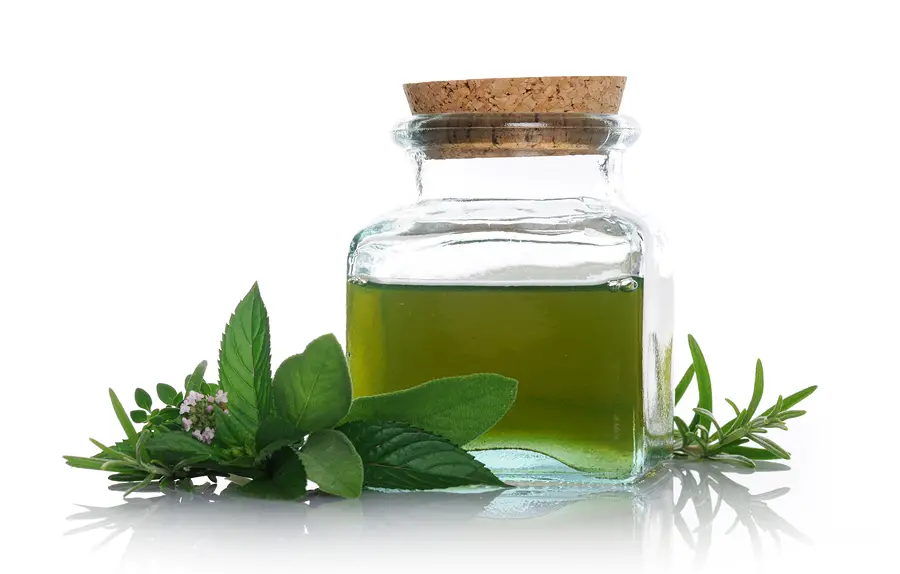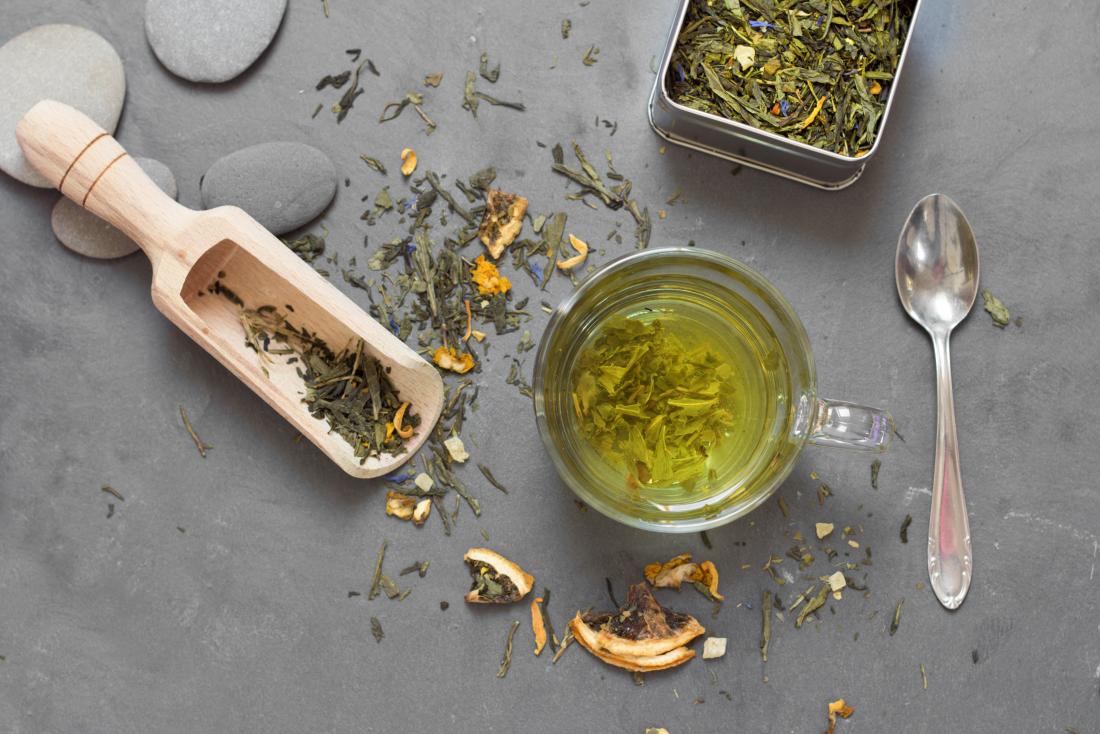Can’t get enough of wasabi?
That green paste that comes with your favorite sushi or sashimi actually comes from a perennial rhizome grown in Japan [1]
Amazingly, this crop does more than spice up Japanese cuisine. It is enriched with essential nutrients and has many therapeutic effects as claimed by the experts .
Its unique flavor and pungent smell is due to the presence of isothiocyanates, which are known to have anti-cancer effects [2].
This article outlines health benefits of wasabi and its key nutrients facts.

READ MORE: 14 Health Benefits of Jackfruit That You Should Know About
Proven Health Benefits of Wasabi- Based on Research
1. Wasabi May Prevent Leukemia
National Cancer Institute estimates that about 1.5 percent of people will be diagnosed with leukemia at some point in their lives.
Leukemia refers to the cancer involving the lymphatic system and bone marrow, explain experts.
This type of cancer usually affects the body’s white blood cells, which are described as the “potent infection fighters” [3].
Common signs of leukemia include fever, chills, weakness, fatigue, unexplained weight loss, infections, swollen lymph nodes, enlarged liver or spleen, small red spots on the skin, and frequent bruising or bleeding.
In a study conducted in 2002, it was reported that the isothiocyanates in wasabi can inhibit the growth and spread of leukemia cells [4].
Key Takeaways:
- Leukemia is a form of cancer involving the body’s white blood cells and the lymphatic system.
- You can reduce the risk of leukemia with wasabi, which has significant anti-cancer effects.
2. Wasabi Can Control Cancer Cells in the Breast
According to the World Cancer Research Fund International, breast cancer is the most common cancer affecting women all over the world.
It is the “second leading cause of cancer death in women,” reports American Cancer Society.
A good indicator that one has breast cancer is the presence of a lump inside the breast.
Other symptoms include breast pain, breast inflammation, skin irritation, retraction of nipple, nipple discharge, and thickening or redness around the nipple.
A Japanese study in 2005 reported that a component of wasabi suppressed both the growth and survival of breast cancer cells [5].
At 43.7 microM, the active compound in wasabi was able to suppress the survival rate of the cancer cells by up to 50 percent [5].
Researchers recommend wasabi as a “new possible candidate for controlling cancer cells” [5].
Key Takeaways:
- Breast cancer claims the lives of many women around the world every year.
- It is characterized by an abnormal growth inside the breast
- An active compound in wasabi has been proven to have inhibitory effects against breast cancer cells, suppressing both their growth and survival.
3. Wasabi Can Reduce the Risk of Stomach Cancer
Stomach cancer is one of the types of cancer that’s difficult to diagnose and treat because it typically doesn’t have any symptom during the early stage [8].
Also called gastric cancer, stomach cancer affects the stomach lining, sometimes causing loss of appetite and abdominal pain [6].
In a laboratory experiment conducted in 1991, rat subjects were fed with either water mixed with 10 percent of wasabi powder or pure water for 40 weeks [7].
The autopsy of rats showed that there were no tumors inside the stomach of rats that were fed with water containing wasabi [7].
Findings reveal that oral intake of wasabi suppressed carcinogenesis in the stomach [7].
A similar study involving human subjects released positive findings [8].
Key Takeaways:
- Stomach cancer is difficult to detect as it does not exhibit any sign or symptom during the early stage.
- This cancer, which affects the stomach lining, causes abdominal pain and loss of appetite, among other symptoms.
- According to research, wasabi has the ability to inhibit the cancer formation inside the stomach.
4. Wasabi Can Suppress Cancer in the Colon
The risk of colon cancer increases at the age of 50 [9].
This doesn’t mean that you have to wait until you’re 50 before you start taking care of your colon.
Even before reaching this age, it pays to have a proactive defense against this cancer that affects the cells in the colon [10].
Research published in The American Society for Nutritional Sciences Journal suggests that consumption of cruciferous vegetables high in isothiocyanates and glucosinolates such as wasabi can reduce the risk of cancer in internal organs including the colon [11].
Animal-based clinical trials have proven that these compounds can efficiently inhibit the process of carcinogenesis [11].
Key Takeaway:
- Wasabi controls colon cancer cells by stopping the activities of cancer-causing chemicals or substances.
5. Wasabi May Prevent Heart Disease
Cancer is not the only serious ailment that can be prevented with wasabi, so is heart disease.
Heart disease continues to be the number one killer anywhere in the world, claiming the lives of millions of people each year.
Studies have shown that platelet aggregation plays a role in the development of coronary heart disease [12, 13].
It has been proven in scientific literature that wasabi can inhibit the hyperaggregation of platelets, and thus reduce the risk of heart disease [14].
This course of action of wasabi can be attributed to isothiocyanates, specifically to 6-Methylsulfinylhexyl isothiocyanate [14].
Including wasabi in your diet won’t only make your dishes more delicious, this can also help protect your heart from disease.
Key Takeaways:
- Heart disease kills millions of people each year.
- To protect against this disease, it helps to reduce aggregation of platelets.
- Wasabi has this positive effect on the cardiovascular system, and is therefore seen as a way to reduce risk of heart disease.
6. Wasabi Can Help Prevent Thrombosis
Not as many people are familiar with thrombosis but just like cancer and heart disease, it is also potentially fatal.
Wikipedia says that thrombosis occurs when a blood clot forms inside a blood vessel, hindering proper blood flow in the circulatory system.
Although blood clotting is necessary for the healing of tissue injury such as wounds, it can be a problem when the blood clot travels to another part of the body and hinders blood flow.
It can cause for an internal organ to stop functioning.
It has been shown in several studies that wasabi can prevent such occurrence [14, 15].
The way it works is similar to how it prevents heart disease, and that’s by suppressing the aggregation of platelets in the blood [15].
It can therefore prevent thrombosis such as deep vein thrombosis which can lead to pulmonary embolism, a life-threatening disease.
Key Takeaway:
- Thrombosis is also a deadly disease like cancer and heart disease.
- Wasabi can prevent this with its anti-platelet aggregation activities.
7. Wasabi Can Relieve Gastric Ulcer
Otherwise known as peptic ulcer disease, gastric ulcer refers to the presence of one or more sores inside the lining of the stomach or in the upper area of the small intestine called duodenal.
For years, it was believed that spicy foods and condiments worsen gastric ulcer.
This is why people who are diagnosed with this condition try their best to exclude such dishes from their diet.
However, recent research shows that certain spices like wasabi can actually relieve this problem [16].
It was discovered that Allyl isothiocyanate (AIT) in the roots, leaves and stems of wasabi can effectively destroy Helicobacter Pylori [17].
Although all the parts can kill this bacterial strain, the leaves are the most potent [17].
This bacterium is the most common cause of gastric ulcer [18].
Key Takeaways:
- Gastric ulcer, which is caused by an infection of Helicobacter pylori, can cause severe pain in the abdomen.
- To relieve pain, it’s important to solve the root of the problem with anti-ulcer wasabi.
READ MORE: Aloe Vera for Gastritis, Ulcer, and Stomach Infections
8. Wasabi Can Treat Food Poisoning
Food poisoning is something you don’t ever want to experience as it causes severe stomach pain, diarrhea, vomiting, weakness and nausea [19].
According to a 2013 study published in the Food Control Journal, salmonella is one of the leading causes of food poisoning in the world [20].
Certain natural remedies like wasabi can help.
Several studies have shown that wasabi has antibacterial properties salmonella and other against bacteria strains that cause food poisoning [21, 22].
Wasabi is said to have a high potential in controlling food pathogens [22].
It works by inhibiting both the growth and spread of bacteria [22].
Key Takeaways:
- Wasabi has antibacterial activities against pathogens that cause foodborne illnesses.
- It works by preventing bacteria from growing and spreading.
READ MORE: 12 Natural Ways to Get Rid of Nausea (with Step-by-Step)
9. Wasabi Can Combat Fungal Infections
While many types of fungi are harmless, some are actually dangerous.
Some fungal disease can lead to serious infections that are potentially fatal.
These include fungal meningitis, tuberculosis and flu, says the CDC.
Fight these infections with the use of wasabi, which contains powerful antifungal properties [23, 24, 25].
Key Takeaways:
- Most fungi are not deadly, but those that are can cause potentially fatal ailments such as fungal meningitis.
- Combat such fungal infections with wasabi and its fungicidal effects.
10. Wasabi Stimulates Bone Metabolism
Many people don’t realize how important bone metabolism is.
Wikipedia explains that when there is an imbalance in the resorption and formation of the bones, osteoporosis and other serious bone diseases can develop.
Osteoporosis is a degenerative bone disease, which causes bones to lose tissue and mass, and become more susceptible to damage and injury.
It’s a good thing that certain foods like wasabi can stimulate this process, and work to strengthen the bones.
Various studies show that wasabi has anabolic effect on bone metabolism and can therefore prevent bone diseases [26, 27, 28].
Key Takeaways:
- Bone metabolism is an important process that can help prevent bone degeneration.
- Wasabi has the ability to stimulate this process to ward off osteoporosis and similar bone problems.
11. Wasabi Fights Disease-Causing Bacteria
Bacteria are usually considered harmful as they cause many types of serious ailments [29].
However, some are actually good for the health and needed by the body to function such as the good bacteria in the gut [29].
Those that cause serious harm should be toned down with the use of natural antibiotics like wasabi.
A 2004 study confirmed that wasabi can kill pathogenic bacteria and prevent a wide range of diseases [30].
Key Takeaway:
- Destroy pathogenic bacteria that cause disease and infection by using wasabi as condiment.
12. Wasabi Can Alleviate Atopic Dermatitis
More commonly known as eczema, dermatitis is a condition that causes red, itchy and swollen skin [31, 32].
Although there’s no cure for this health problem, it can be managed with dietary changes.
According to Mayo Clinic, self-care measures can alleviate outbreaks and reduce the severity of symptoms.
In 2009, researchers from Nagoya, Japan evaluated the effects of 10 percent wasabi extract on rats induced with eczema [33].
Results show that wasabi can effectively improve symptoms of eczema such as skin itchiness, inflammation and redness [33].
Moreover, it was found to “significantly reduce the number of positive stained cells” [33].
Key Takeaways:
- Atopic dermatitis or eczema causes the skin to become itchy, red, and swollen.
- One way to manage this condition is with wasabi, which is capable of reducing unpleasant symptoms of itchiness, redness and inflammation.
READ MORE: Treat Eczema Naturally with Coconut Oil: 6 Simple Ways to Try Now
13. Wasabi Can Prevent and Treat Influenza
Did you know that flu kills 20,000 people every year [34]?
Caused by the influenza virus, the flu is a highly contagious respiratory ailment that affects the throat, lungs and nose [34].
Apart from getting a flu shot, another effective way of preventing flu is with wasabi.
Research that can be found in the Journal of the Science of Food and Agriculture verify that the leaves of wasabi have anti-influenza activities [35].
Extract from the leaves inhibited the replication of influenza virus [35].
At minimum concentration, wasabi can inhibit the growth and spread of this virus by up to 98 percent [35].
Key Takeaways:
- Flu is a highly contagious respiratory infection that can be combated with the help of wasabi.
- Wasabi has anti-influenza activities that can prevent the influenza virus from replicating and spreading.
14. Wasabi Can Aid in Weight Loss
Obesity is a growing problem anywhere in the world, surpassing malnutrition and infectious disease as the leading cause of poor health [36].
In fact, this has been linked to serious medical conditions including diabetes and heart disease [37].
To keep yourself in top health, it’s important to maintain a healthy weight.
Of course, this is easier said than done.
To achieve the ideal weight, one must be consistent in following a proper diet and regular workout.
With its anti-obesity effects, wasabi can also help, as shown in a scientific study [38].
Hot water extract from this rhizome has been proven effective in reducing weight among those who are fed with diet high in fat [38].
Key Takeaways: A good way to reduce weight is with wasabi. Maintaining an ideal weight is important in preventing a number of serious ailments.
READ MORE: The Benefits of Honey and Cinnamon for Weight Loss
Wasabi Nutrition Facts
Wasabi contains various nutrients the body needs to maintain optimal health. Some of these are vitamin B-6, calcium, magnesium, iron, carbohydrates, fiber and protein. It is also a good source of vitamin C, supplying 69 percent of your daily need.
The list below features nutritional information based on a 100-gram serving of wasabi. The percentage values are for a 2,000 calorie diet.
- Calories 109
- Fat 6 g
- Cholesterol 0 mg
- Sodium 17 mg
- Potassium 568 mg
- Protein 8 g
- Dietary fiber 8 g
- Carbs 24 g
- Vitamin C 69%
- Calcium 12%
- Magnesium 17%
- Iron 5%
- Vitamin B-6 15%
Conclusion
Wasabi offers numerous benefits for the health.
The nutrients and vitamins in wasabi can promote overall health. it can also prevent deadly diseases like cancer, heart disease and thrombosis.
Wasabi is good for controlling infections caused by pathogens such as bacteria, viruses and fungi.
READ NEXT: 12 Impressive Health Benefits of Kefir (Backed by Science)
